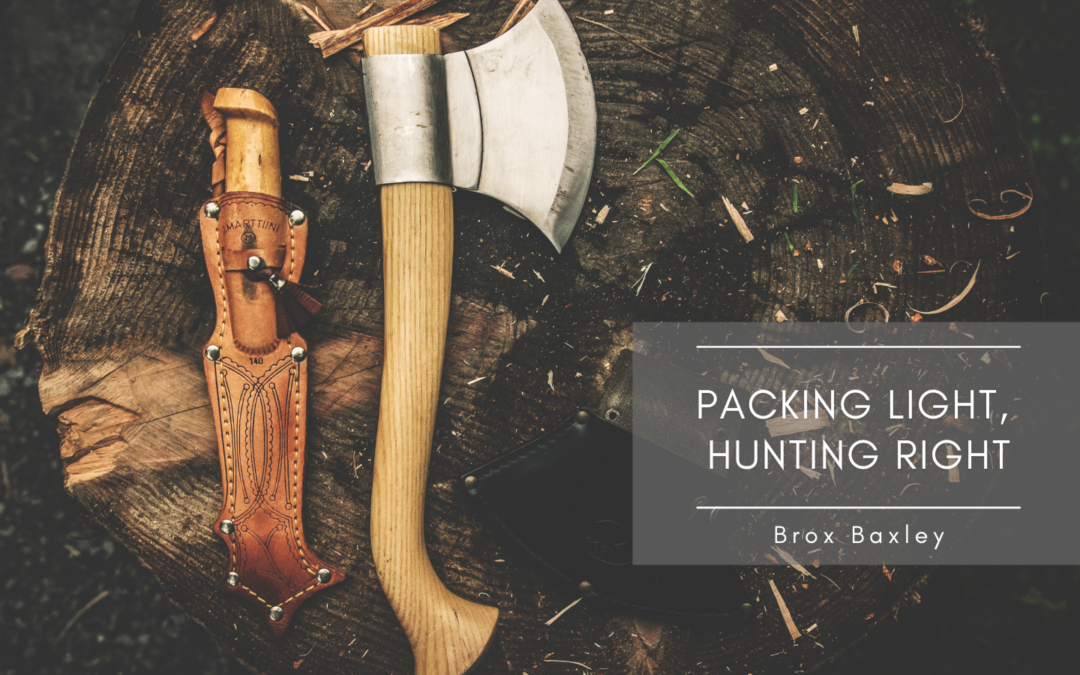In the field, every ounce matters. Whether you’re trekking into backcountry terrain or stalking game over rolling hills, carrying too much can slow you down and wear you out. The key to a successful hunt isn’t just in skill or strategy—it’s also in the pack on your back. “Packing Light, Hunting Right” is about making smart, minimalist choices without sacrificing readiness, safety, or effectiveness.
1. Prioritize the Essentials
A well-packed hunting kit is built around the bare necessities. Start with the basics: navigation (map, compass, GPS), hydration (water bottle or purifier), fire starter, first-aid kit, and a reliable multi-tool. Your weapon, ammunition, tags, and field-dressing tools should always take priority. Beyond that, ask yourself with each item: “Do I really need this?” If the answer is no, it stays home.
2. Choose Multi-Use Gear
Smart hunters know that versatility is gold. A poncho can double as a ground cloth or shelter. A lightweight tarp may serve as a blind, rain cover, or emergency stretcher. Multi-use gear minimizes bulk and maximizes efficiency. Look for tools that perform more than one function and clothing that adapts to varying weather conditions without requiring extra layers.
3. Pack for the Terrain and Duration
Tailor your loadout to the specific hunt. A day hunt in mild weather doesn’t require the same pack as a multi-day excursion in unpredictable conditions. Understand the terrain you’ll cover—steep climbs, dense brush, or long hauls—and adjust accordingly. Choose lighter materials for packs, jackets, and boots that don’t sacrifice durability.
4. Food and Water Strategy
Nutrition and hydration are critical, but don’t overdo it. High-protein, calorie-dense snacks like jerky, trail mix, and energy bars are better than bulky meals. Carry enough water for your hike and know where to refill if you’re in the wild—filtering or purifying water on-site reduces your load significantly.
5. Practice Before You Go
Test your pack before the hunt. Take it on short hikes to see how it feels, how accessible your gear is, and whether you’re truly prepared. This pre-trip check ensures you’re not caught off guard and that your light pack is also a smart one.
Conclusion
Packing light doesn’t mean going without—it means going smart. A lighter pack keeps you mobile, alert, and ready to respond in the moment. When every step matters, streamlined gear can make all the difference between a good hunt and a great one.

